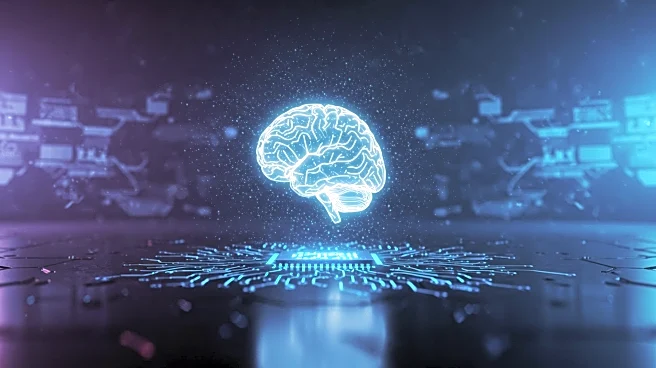What's Happening?
OpenAI is set to release its latest AI model, GPT-5, amidst significant anticipation and scrutiny. CEO Sam Altman has been vocal about the model's potential, suggesting it could bring humanity closer to digital superintelligence. However, reports indicate that the improvements in GPT-5 are primarily in solving math problems and writing software code, with insiders suggesting these upgrades are not as substantial as previous iterations like GPT-3 and GPT-4. The development faced challenges due to a dwindling supply of high-quality web data for training, and the model's performance has reportedly degraded over time, particularly in basic tasks such as accounting.
Why It's Important?
The release of GPT-5 is significant for the tech industry, as it represents the ongoing evolution of AI capabilities. While the model's improvements may be incremental, they still hold potential for enhancing various applications in software development and data analysis. However, the reported degradation in performance raises concerns about the reliability of AI models over time, impacting industries that rely on precise calculations and data integrity. OpenAI's ability to secure substantial funding and its projected income growth highlight the commercial interest and investment in AI technology, despite the challenges faced.
What's Next?
OpenAI is expected to continue refining its AI models, with potential plans to go public in 2026. The company aims to secure up to $40 billion in funding by the end of the year, which could support further research and development. As AI technology evolves, stakeholders in various sectors, including software engineering and finance, will need to assess the implications of integrating AI models like GPT-5 into their operations. The tech community will likely monitor OpenAI's progress and the real-world applications of GPT-5 closely.
Beyond the Headlines
The ethical and practical implications of AI advancements remain a topic of debate. As AI models become more integrated into everyday tasks, questions about data privacy, accuracy, and the potential for AI to replace human jobs persist. OpenAI's approach to addressing these concerns, alongside its technological developments, will be crucial in shaping public perception and policy around AI.









